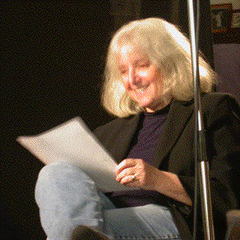The Rules of Blogging and Pseudo Geekdom
I'm just learning the rules of blogging, so if anything I do in terms of quotations, or reprinting stories or parts of articles that I like and I don't do it right, please bare with me. And let me know if anything logistical (or anything for that matter) bothers you. If I'm breaking some blogging rule, it is not by intention but by sheer ignorance. How much I am a pseudo geek became increasingly evident as the past year rolled by. A wannabe geek sort of like the blog title of a blogger whose name I don't remember at the moment (another apology due) who calls her/his blog, a "wannabe GTDer" which I definitely identify with. I not only wish I were a geek instead of a pseudo geek, I wish I were more successful at GTD (again for those of you not yet into productivity as a passionate subject in life, this is in reference to David Allen's methodology presented in his book "Getting Things Done."
I'm so much a pseudo geek and an impulsive scientist that even though I was using my first Mac in 1895, I have never read a software manual, and I haven't found out what the rules are in blogging, and how to be sure I follow them. I've been writing every day since --never mind that-- lets just say way before I had my first Mac, but as I mentioned a few days ago, I was writing to people I knew, boyfriends, colleagues, my analyst, bosses, friends, my children, anyone who I thought might read at least some of what I write. I was not writing for the public, except in my scientific articles and the people who read the journals they appear in are hardly the public at large. Readers of scientific articles are almost always other scientists or students being forced to read that boring style by their teachers. So whatever I wrote, it always seemed rather private and I didn't worry too much about it. Oh I wrote political things that got around, but even there it was in relatively small circles and even if I should have worried about it, I didn't. Now I want to continue addressing my students (hear hear everyone) because if I'm not writing to someone in particular, it has to be a group of some-ones. I think going public might be somewhat daring because I might lose track of whom I'm talking to. In fact I might have no idea who I'm talking to. I wonder if I should do the ad thing, through Google or if that is considered crass. I am sure of one thing, at this age I don't intend to start worrying too much about what people think of me. But I can't stand the idea of hurting someone's feelings, or getting sent to blog hell because I didn’t follow rules I didn't know.
The First Blog I Read: Introducing Steve Pavlina and How to Succeed in 30 Days
I read a great article tonight, or to be more accurate, I reread an article by Steve Pavlina who I is a kind of productivity blogger. Pavlina is what psychologists should be, but unfortunately we don't usually make it. I'm trying to change; I think I'll hand out the Pavlina blog I discuss here, to my Professional Development Seminar this week.
http://www.stevepavlina.com/blog/2005/04/30-days-to
The first time I read Pavlina's "30 Days to Success," I really didn't know it was a blog because I didn't know what a blog was, I hadn't heard of it (see, pseudo geekdom, if I knew anything about anything, I should have known what a blog was by 2005). I thought it was an article and I loved it. Rereading it tonight I loved it even more. Pavlina discusses a great tactic for getting yourself to attempt to do some piece of life improvement (personal betterment?) by posing it as a short-term challenge, and not a life-long commitment to something onerous. For example, if you want to become a day person, someone who gets up early with the rest of the world, or if you want to become an avid exerciser, Pavlina recommends you give yourself a thirty day challenge, and nothing more, nothing less. He says that its really hard to overcome inertia and that that first step to quitting smoking, or learning to run, or learning to write a blog, can be overcome by promising yourself that you will do this new "habit" you want to form or "habit" you want to make a thing of the past for only thirty days. Pavlina suggests that new behaviors take about 30 days to become habitual. I am not sure if there is scientific validity to that proposal, it takes most people a lot longer to get over excessive alcohol consumption, or to lose any sizable amount of weight, or to stay on a diet beyond a month or two. But he has a point, namely that if you do something for 30 days as a sort of personal experiment and you find it has a good effect (if it becomes inherently rewarding because it makes you feel good, or feel better), at the end of thirty days you are likely to decide to keep the experiment running for another thirty days, and then, past that, up to 90 days and then it really is a habit.
Pavlina as Superman
Pavlina described how he once promised himself he was going to exercise every day for a year, even when he was sick, and he did it. And then he went on for a few more weeks, and its sounds like he still exercises every day. He definitely eats vegan and got to that through a series of 30-day experiments. Obviously Pavlina's exercising every day for a year speak to a great deal more than his original suggestion to do something for 30 days, and it made me think he was made of steel or something and completely unlike the rest of us mortals.
It reminded me of another blog Pavlina wrote about how to get things done by working efficiently, and he spelled out how he went through college in half the time it normally takes using a large number of mind-numbing but effective tactics. When I read that one I knew he was beyond most people in terms of work and capacity for disciple, and the whole time I was rereading this piece I find encouraging, his unusual prowess was in the back of my mind. "Well maybe that is true for YOU Steve Pavlina, but the rest of us couldn't begin to do that." But maybe its true, we can do things we think we can't do if we make it time-limited. I'm trying to become an early riser (also written about by Pavlina) and I'm taking the thirty-day approach. However, my husband and I just joined Weight Watchers but not by telling ourselves we'd follow "the plan" for thirty days. If we thought we had to discipline ourselves that long, we would never have initiated this new behavior. We're hoping that after a week we might decide to do another week, but that is as far as it goes.
Despite all my reservations and usual "where is the evidence for that, where in the scientific literature have they demonstrated that it takes only 30 days to form a habit?" I think he might be right and I think he was on to positive psychology just as it was hitting the mass media. Everyone knows about breaking difficult tasks into smaller and smaller pieces until you get the job down into such small pieces that you can really begin it, its easy. Maybe Pavlina rather brilliantly applied that to overcoming bad habits and picking up good ones. I'm sure ready to give it a try, and I'll keep everyone posted.
Subscribe to:
Post Comments (Atom)


3 comments:
I have been following with interest your discussion of getting organized. I have been trying for six months to begin some simple exercises given to me by my physical therapist to treat back pain and overall stiffness; I just can't seem to get started and I feel really bad about it: week after week I plan to start them but somehow I never make the time. I don't entirely understand why it's so hard, though I think I can't be in denial about what bad shape I'm and tackle these exercises every day, and I guess I've preferred to be in denial.
Kathy:
We only think we're in denial. As David Allen would say, those nagging things we don't do are always lingering in the back of our minds and messing up our ability to do much of anything well. Once we have it out there, we can make a decision. For example, "I will do my back exercises today." But better yet, change that to "I will do five minutes of my back exercises today" and put on a timer, and do it right minute. Or make it ten minutes max, you know you can do five or ten minutes. Then if you want to go on you can, but if you don't you dont. And you can see if it seems worthwhile, having done them. According to Pavlina, you should make a promise to yourself to do your back exercises (or five mintues of them) every single day for 30 days, with no deviating from that. Tell yourself you can do this for thirty days, and you can. that is how long it takes to build them into "a habit." And see how you feel after 30 days. YOu may decide they weren't worth it, or they may have made a huge difference. Look at it as an experiment wiht your body, and make the 30 day committment. See what happens, and let us know what happens.
Post a Comment